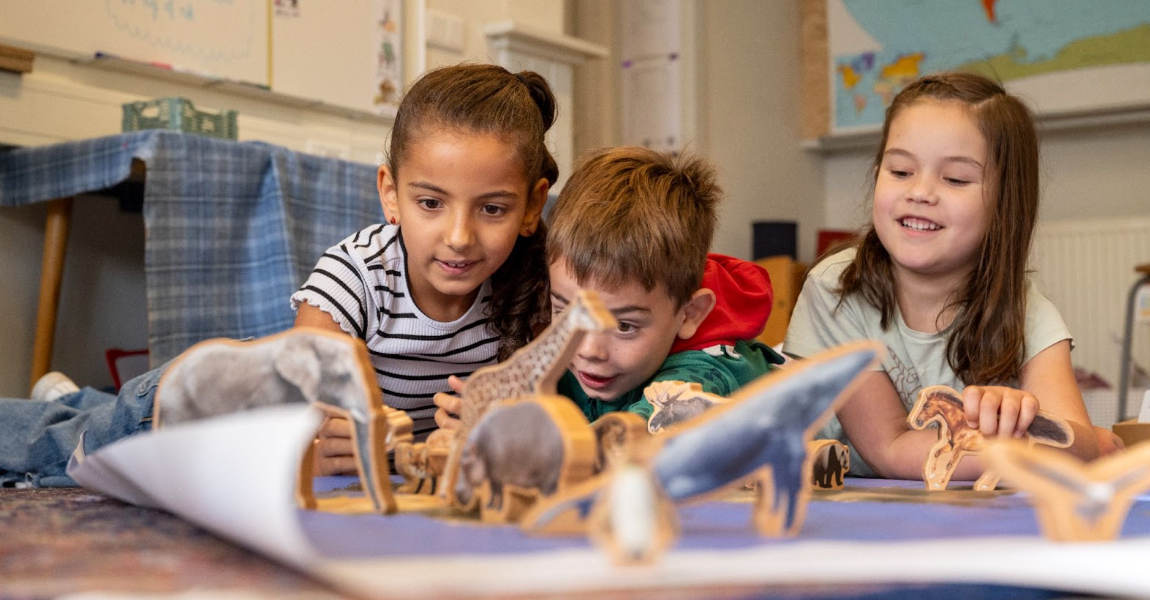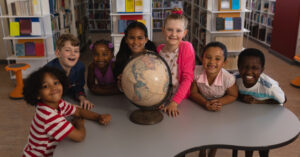Choosing the Right Montessori Preschool: What Parents Should Look For

Choosing a preschool is one of the most important decisions a parent can make. The early years of a child’s education are not just about learning letters and numbers—they’re about forming a solid foundation for how a child thinks, feels, and approaches learning for the rest of their life.
What Defines a Montessori Preschool?
Before diving into the checklist for choosing the right school, let’s understand what makes Montessori preschool unique.
Developed by Dr. Maria Montessori, the Montessori method is based on the belief that children learn best in a prepared environment that supports their natural curiosity and independence. Unlike traditional methods, Montessori places the child at the center of the learning process and emphasizes hands-on learning, emotional development, and respect for each individual.
A true Montessori preschool will have:
- Mixed-age classrooms to encourage peer learning
- Self-directed activity choices within structured environments
- Hands-on learning materials that target specific developmental goals
- Facilitators (not teachers) who guide rather than instruct
- Focus on practical life skills, not just academic readiness
Why the Montessori International Approach Matters
In today’s increasingly global society, exposure to international values and cultural diversity is essential—even for young learners. A Montessori international preschool integrates global awareness, multilingual elements, and cultural celebrations into everyday learning.
At Dreamtime Learning Hub, our curriculum introduces children to global thinking from the start, helping them understand that the world is full of different perspectives, traditions, and ideas. This approach not only builds empathy but also sets the stage for strong communication and problem-solving skills later in life.
The Role of Microschools in Montessori Preschool
One of the most exciting evolutions in education today is the rise of Microschools—small, personalized learning communities that allow for greater flexibility, individualized attention, and meaningful relationships.
When paired with Montessori principles, Microschools become an ideal environment for early learners. At Dreamtime Learning Hub, our Microschool model means:
- Smaller class sizes
- Personalized learning pathways
- Strong educator-student relationships
- Freedom to explore at the child’s pace
This setup offers young learners the best of both worlds: Montessori’s philosophical grounding and the Microschool’s innovation and responsiveness.
Checklist: What to Look for in a Montessori Preschool
If you’re visiting schools or researching online, here are key features to look for:
1. Certified Montessori Educators
Make sure the facilitators are trained in Montessori methods and understand child psychology, observation techniques, and the use of Montessori materials.
2. Prepared Environment
The space should be inviting, safe, and designed for children to move freely and independently. Look for natural lighting, organized shelves, and purposeful learning areas.
3. Child-Led Activities
Watch how children interact with their environment. Are they making choices independently? Are facilitators gently guiding rather than instructing?
4. Montessori Materials
Authentic Montessori materials are specific, hands-on tools designed to teach complex concepts in tangible ways. Look for materials that support math, language, sensory development, and life skills.
5. Global and Cultural Exposure
In a Montessori international setting, children should be introduced to world cultures, languages, and traditions through music, stories, activities, and celebrations.
6. Low Teacher-to-Student Ratio
This ensures that every child receives the attention and support they need, especially during formative years.
7. Emotional and Social Development Programs
Montessori education values the whole child. Look for schools that integrate emotional intelligence, social skills, and mindfulness into daily routines.
Why Dreamtime Learning Hub Is a Top Choice in Hyderabad
Here’s what makes Dreamtime unique:
- Certified Montessori educators with global experience
- Beautifully prepared environments that spark curiosity
- A curriculum that balances academic growth with emotional wellbeing
- Opportunities for collaboration, cultural exploration, and real-world learning
- Small group learning that ensures every child’s voice is heard
We are committed to creating a space where your child can grow confidently, joyfully, and holistically.
Parent Insights: Real Experiences at Dreamtime
“Dreamtime feels more like a family than a school. Our daughter has become more confident, independent, and socially aware. She talks about new cultures, helps around the house, and can’t wait to go to school each day.”
— Parent of a Dreamtime preschooler
FAQs: What Parents Ask When Choosing a Montessori Preschool
1. What age is best to start Montessori preschool?
Children can start Montessori preschool between 2.5 and 3 years old, depending on their developmental readiness and the school’s enrollment criteria.
2. Is a Montessori preschool better than traditional preschool?
Montessori preschools focus on holistic development, independence, and self-paced learning, making them an excellent option for many children compared to rigid traditional models.
3. What is a Montessori international preschool?
A Montessori international preschool blends traditional Montessori methods with global education, introducing children to multiple cultures, languages, and perspectives early on.
4. What is a Microschool, and why is it better?
A Microschool is a small learning community that offers personalized, flexible education. For preschoolers, this means more attention, less stress, and a supportive social environment.
5. Which is the top Montessori preschool in Hyderabad?
Dreamtime Learning Hub is recognized among the top schools in Hyderabad for its Montessori international curriculum and Microschool approach that supports early learners in every way.
Conclusion: Your Child Deserves the Best Start
The right preschool can set the tone for your child’s entire educational journey. Choosing a Montessori preschool that values child-led learning, global perspectives, and emotional development is one of the best investments you can make as a parent.
Let's Talk
Share this Articles




